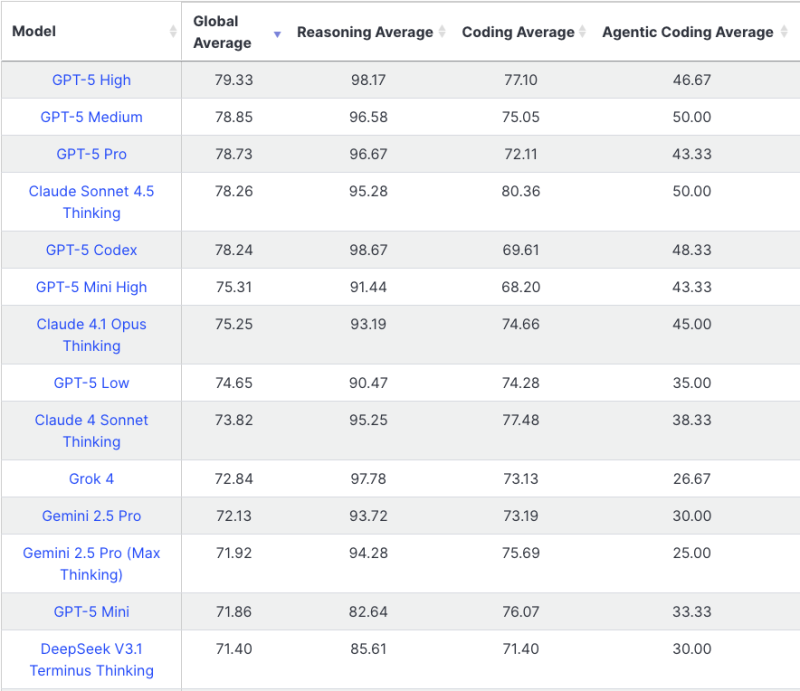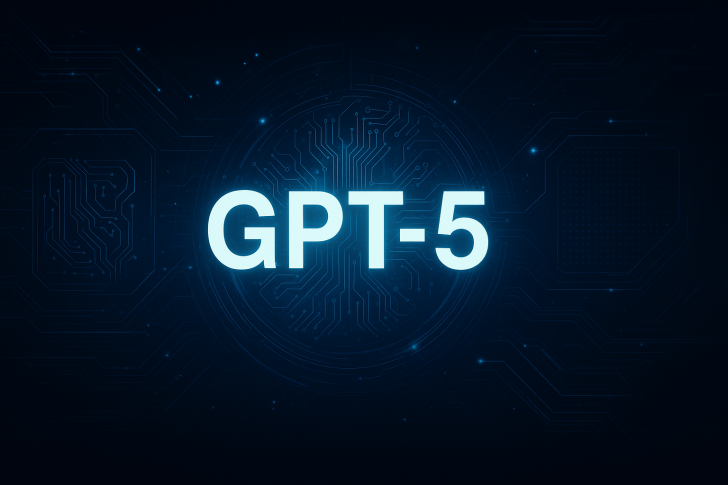Recent benchmark results have sparked debate about the growing divide in AI capabilities. AI commentator Bindu Reddy recently highlighted concerns that open-source AI is losing ground to proprietary models like GPT-5, Claude Sonnet, Gemini, and Grok. The latest LiveBench AI data suggests this gap may be difficult to close.
Benchmark Results
The numbers tell a compelling story. GPT-5 High topped the charts with a global average of 79.33, driven by an impressive reasoning score of 98.17. GPT-5 Medium (78.85) and GPT-5 Pro (78.73) weren't far behind. Claude Sonnet 4.5 Thinking scored 78.26, showing Anthropic is keeping pace. Meanwhile, GPT-5 Codex posted the highest reasoning score at 98.67, though its coding performance was more modest.

The best open-source model, DeepSeek V3.1 Terminus Thinking, managed only 71.40—nearly 8 points below GPT-5 High. That's a substantial gap in benchmark terms, lending weight to concerns that open source might not catch up anytime soon.
Most open-source progress has come from China's DeepSeek project, but U.S. restrictions on Nvidia GPUs are creating serious compute bottlenecks that slow development of competitive models.
Why This Matters
This divergence has real consequences. Innovation is concentrating in a handful of corporate labs, limiting broader access to cutting-edge AI. Open-source advancement now depends heavily on Chinese research, making it vulnerable to geopolitical tensions. Without access to advanced Nvidia hardware, training GPT-5-caliber models becomes nearly impossible. Independent researchers and startups risk being shut out of frontier AI development entirely.
What's Next for Open Source
The gap is widening, but open source hasn't lost yet. Smaller specialized models, efficiency innovations, and distributed computing might offer alternative paths forward. Still, for general-purpose large language models, the data clearly shows closed-source labs are cementing their lead.
Conclusion
The LiveBench results paint a stark picture: GPT-5 dominates with unprecedented reasoning capabilities, Claude remains competitive, and Gemini and Grok hold their ground. Open-source models like DeepSeek are falling further behind, constrained by limited compute access and resources. Without breakthrough improvements in efficiency or hardware availability, we may be entering an era of permanent closed-source dominance in AI.
 Usman Salis
Usman Salis

 Usman Salis
Usman Salis


